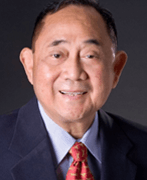Part 2 of 3
(Remarks of former Philippine speaker Jose de Venecia – founding chairman, International Conference of Asian Political Parties (ICAPP); co-chairman, International Association of Parliamentarians for Peace (IAPP); chairman emeritus, Universal Peace Federation (UPF); Special Envoy of the President to the Asia-Pacific Economic Cooperation (APEC) and for Intercultural Dialogue at the UPF World Summit 2019 “Peace, Security and Human Development” Seoul, Republic of Korea; February 7-11, 2019)
Ideological differences shouldn’t get in the way
Excellencies, friends: In Northeast Asia today, we need to develop pragmatic and creative methods that will try to rebuild North-South relations in the Korean Peninsula—without hopefully allowing too many of the ideological differences to get in the way.
It is our hope to contribute even small efforts to peace and unification in the Korean peninsula, which now have the beginnings and potential to lead to a breakthrough long awaited by Asia and the global community.
Proposals for peace in the Korean peninsula
We believe that over and above the giving up of its nuclear weapons, it would be realpolitik to expect that North Korea would hope for an iron-clad Omnibus Agreement leading to a Permanent Peace Treaty, with the South and the U.S. that could likely include the following, as we already pointed out in our earlier conferences:
• North Korea (The Democratic People’s Republic of Korea, DPRK) and South Korea (Republic of Korea, ROK), as separate independent Republics, but perhaps connected together by a loose Confederation, until at some point in the near or distant future, they can consider uniting like the two Vietnams or the two Germanys;
• Withdrawal of U.S. troops from South Korea;
• Withdrawal of large North Korean and South Korean troops from the areas of the Demilitarized Zone (DMZ) in the 38th Parallel to make the DMZ really demilitarized;
• Development of a concrete formula for South-North Confederation where the two Koreas will be separate and independent but develop common inter-dependent synergies until they can set-up a Union or what the Greeks call “Enosis” in 15 to 25 years or earlier;
• Develop inter-Korea commercial flights, highways, and a common railway system for the two Koreas from Pusan at the end of the Korean South facing Japan to North Korea’s Yalu border with China, which, it is hoped, will interlinkwith the Trans-Siberian Railway to Russia and to Europe;
• Develop close political and economic relations between North and South and with China, Japan, the U.S., Russia, and ASEAN and work with the U.N. system and the global community;
• Develop and industrialize the North Korean economy and agriculture, put an end to the recurring causes of famine, expand the education system, and immediately open the region toactive tourism;
• North Korea or DPRK to immediately join ASEAN Plus 3 (Japan, China, South Korea) to become ASEAN Plus 4;
• Immediately organize an adequate Development Fund for compensating North Korea for terminating its nuclear weapons and delivery system, which Fund shall be used for the North’s economic and social development and augmentation of its national budget;
• Consider a state of Neutrality for the two independent Koreas which shall actively interact with the regional and global economy so that the North, with its hydrocarbons potential, mining, and hydro-electric resources, etc. can join the South, which has already developed much earlier into a credible major economic power.
Transfer of ICAPP Secretariat from Manila to Seoul
Excellencies, friends: May I mention that in 2006, as my small, humble contribution in helping encourage direct talks between Seoul and Pyongyang, I transferred from Manila to Seoul the Secretariat of the International Conference of Asian Political Parties (ICAPP), which I founded and established in Manila in September, 2000 and of which I am Chairman of its Standing Committee up to now. The ICAPP Secretariat is now most active in Seoul and headed by Secretary General Park Rob-yug, an experienced South Korean diplomat, and by my Co-Chairman, now South Korean National Security Adviser Chung Eui-yong.
I am proud to inform you that since we formed ICAPP in Manila in 2000, ICAPP now counts some 350 ruling, opposition, and independent parties from 52 countries in Asia, and the Korean Workers Party of North Korea is a respected member of ICAPP.
Reverend Moon and Mother Moon’s goodwill in Pyongyang
May we also point out that the late Reverend Moon and Madame Moon over the years have built genuine goodwill in Pyongyang and among the Koreans in the North and donated their much-appreciated hotel and erstwhile automobile factory that they established there to the North Korean government and people, among many other philanthropies in various parts of the world.
(To be continued next week)





